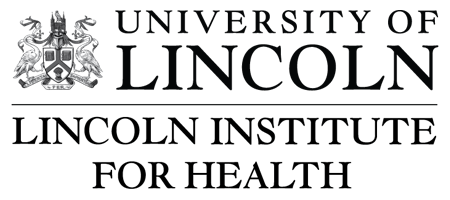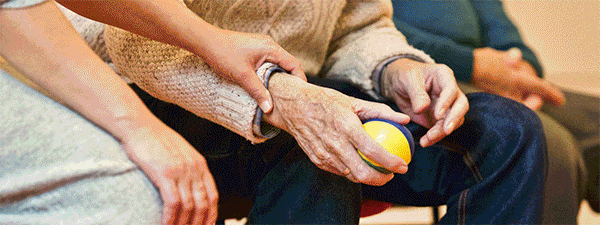Research Groups

Staff within the Lincoln Institute for Health undertake research which spans the pathway from ‘bench to bedside’ and ‘cell to community’.
Our research focus encompasses biomedicine and disease (including molecular and cell biology), drug design and development (bench), and practice and policy related research into quality improvement in health and social care and the effective translation of research findings into clinical and professional practice (bedside and community).All of our research is underpinned by the concept of the Lincoln ‘Living Lab’ – creating and conducting responsive research in partnership with service users, health practitioners and organisations, industry and policy makers.The LIH conducts internationally excellent and world- class research to develop innovative health and social care technologies, treatments and improve health systems. In the recent Research Excellence Framework (2014) assessment, the LIH was ranked 9th out of 98 UK University submissions for the quality of the research conducted by its researchers.
Research Groups within LIH are listed below.
Diabetes, Metabolism and Inflammation
The Diabetes, Metabolism and Inflammation (DMI) Group conducts high quality research in both type 1 and type 2 diabetes, diabetes complications, metabolism, cardiovascular disease and inflammation. The group has a vision has to create a strong, dynamic and engaged research culture to carry out research that has the potential for real world impact at a local, national and international level
Cancer and Ageing Research Group
Cancer and Ageing Research Group Research in the Cancer and Ageing Research Group follows a multi-disciplinary and highly collaborative approach to increase understanding of disease characteristically associated with ageing at the molecular level, to improve prevention, diagnosis, and treatment.
Forensic and Clinical Research Group
The Forensic and Clinical Research Group (FCRG) led by Dr Adrian Parke and based in the School of Psychology at the University of Lincoln, is concerned with aspects of psychological functioning related to forensic and clinical topics
Evolution and Ecology Research Group
Evolution and Ecology Research Group The Evolution and Ecology research group is a highly collaborative, multi-disciplinary community of academics, postgraduate students and postdoctoral researchers. We aim to understand the evolution and ecology of populations, species and communities across all levels of biological organisation, from genes through to ecosystems.
Animal Behaviour and Cognition
The animal behaviour cognition and welfare group works with LIH on aspects of animals and human health. This ranges from work on the spread of important zoonoses (e.g Campylobacter) to the therapeutic benefits of our relationships with animals.
Perception Action and Cognition
Staff in the Perception Action and Cognition group investigate the way that humans perceive, make sense of, and respond to our natural and social surroundings, and the underlying neural mechanisms.
Health Advancement Research Team
The Health Advancement Research Team is an interdisciplinary team based at the University of Lincoln, we conduct research into a wide range of embodiment issues in relation to health, sport, exercise and physical activity, including via innovative methodologies.
Mental Health, Health and Social Care
The Mental Health, Health and Social Care group is an inter-professional research group specialising in exploring workforce enhancement and development; values based practice; living with and beyond cancer in mental health, adult health and social care settings.
Biofeedback in Sport Group
The Biofeedback in Sport (BIO) group aims to apply and understand realtime biofeedback in enhancing sport and human performance. Biofeedback, particularly in realtime, has rarely been used in applications to whole body movements. Using a mixture of fundamental laboratory and applied field based studies we aim to understand the processes and uses of biofeedback in human movement.
Healthy Ageing Research Group (HARG)
The Healthy Ageing Research Group (HARG) carries out research which focuses on ageing and the life course. Areas of interest include: experiences of ageing; ‘healthy ageing’; preventative and early intervention strategies on older adult’s quality of life through improved community and statutory provisions, including integration.
Microbiology and Biotechnology Research Group
The Microbiology and Biotechnology Research Group has a multi-disciplinary approach to answering fundamental questions relating to the characterisation, evaluation and testing of microorganisms and viruses, and a wide range of expertise focussed on using living systems and organisms to develop products
Community and Health Research (CaHRU) Centre
ommunity and Health Research (CaHRU) is the research centre for the School of Health and Social Care, directed by Professor Niro Siriwardena and staffed by 14 core researchers including a professor of medical statistics (Prof Graham Law), two senior lecturers (qualitative methods, statistics), three research fellows (mixed methods, clinical trials, health economics and econometrics), research assistants an administrator.
Laboratory of Vision Engineering Centre
The Laboratory of Vision Engineering (LoVE) led by Prof. Nigel Allinson, specialises in the capture, transmission, processing and understanding of image, video and other high-dimensional data. Eight academic staff members are aligned with the Centre. The Centre focuses on several application areas, including healthcare, scientific, security and environmental monitoring; as well as developing novel processing algorithms and designing/supplying new imagers and systems
Lincoln Centre for Autonomous System Research Centre
Lincoln Centre for Autonomous Systems L-CAS specialises in technologies for perception, learning, decision-making, control and interaction in autonomous systems, especially mobile robots and robotic manipulators, and the integration of these capabilities in application domains including; agri-food, healthcare, intelligent transportation, logistics, nuclear robotics, and service robotics.
